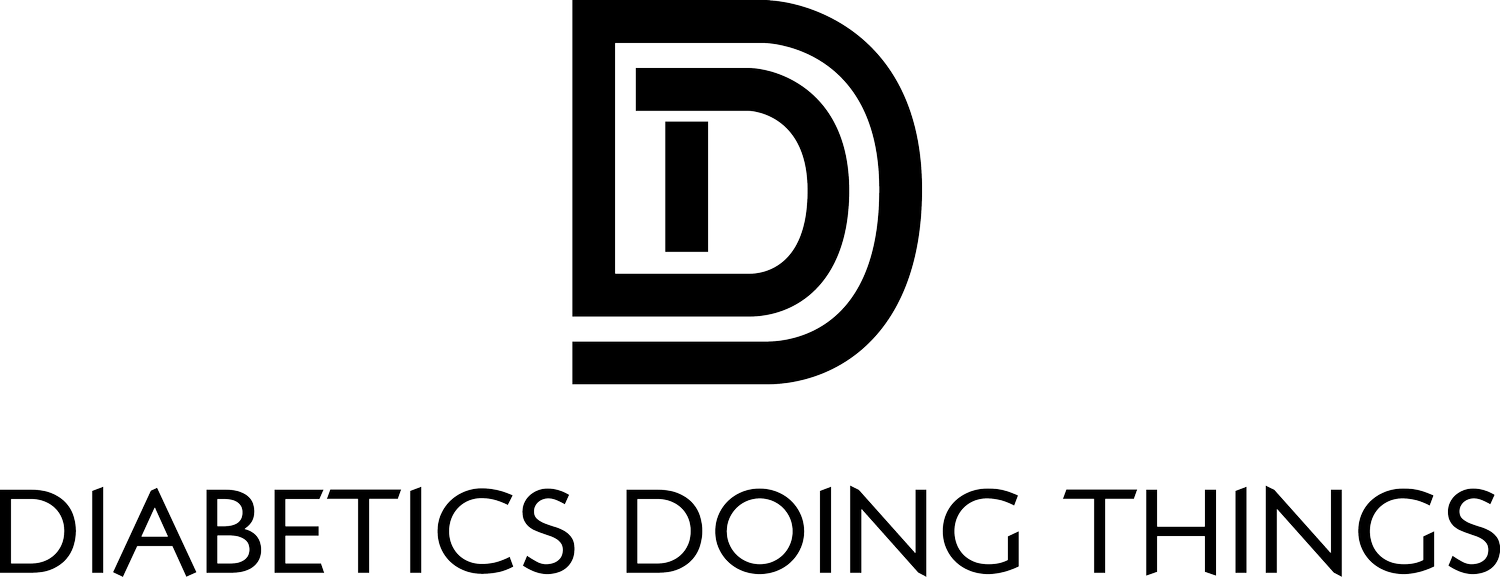“Y tan joven?” (Why so young?) - this is something I often hear when family members or family friends find out I’m type 1. Growing up in El Salvador was never easy, but I loved it. I was never that child that got sick often (besides my unknown pancreatitis episodes that happened a few times a year) - if anything, people thought I was healthy because I was chubby. Chronic illnesses were never (and are still) talked about. As a child, I thought chronic illnesses only happened to “viejitos” (older people) - but never it occurred to me that it could happen to children, “normal” children, like me. Illnesses have always been talked about with such worry in my family, that having one, almost felt like you were sentenced to death.
I remember going back to El Salvador five years after I had moved to San Antonio, Texas and having a physical done - you know, because it’s mas barato (cheaper). I recall my parents talking amongst each other about my blood results. I heard “que tiene el azucar alta” (she has high blood sugar) and didn’t really think anything of it. No one did. I came back to San Antonio and things were fine - until I turned 14. I remember that day so well; before I went to bed I ate 3 starbursts - just 3. Next thing I knew, I was in a diabetic coma.
A few social workers, doctors, nurses, diabetic educators, and days later I still didn’t know what it meant to be diabetic. I was confused. Maybe in denial? And I don’t think my parents knew what was going on either - everything was taught to me in English. Coming home was interesting - I remember my mom clearing out the fridge and filling it up with vegetables. At that moment, I remember thinking “okay - so from now on I only eat vegetables?”. And that’s how it was for a few months, until it all fell apart. Being salavadoreña means pupusas, tortillas, tamales, pan dulce, atol de elote, riguas, pasteles, atol shuco - CARBS. A salvadoreño cannot have a proper meal without having two or three tortillas accompanied with rice, or beans - tell me, how can I make that low carb? Impossible. I started to fall off the “healthy” train and went back to my carb heavy diet. The weight started to pile on until people started to notice. “Estas gordita” (you’re chubby). Is all I would hear - but the thing is, not a lot of people knew I was diabetic. As I had mentioned, in my culture, my family, my roots - being diagnosed with a chronic illness is like being sentenced to death. No one talks about it.
For a while I thought my parents were embarrassed to tell people I was a type 1 - which at some point made sense. Why would anyone want to tell all their family and friends that their child is diabetic and that people may think they fed their child too much sugar? And be judged? Yeah - I get it. Then, it didn’t make sense. Being newly diagnosed, going through puberty, and living in a salvadorian household, where feelings sometimes don’t exist, was hard. I had never felt so alone. I then started to not talk about it - to the point I pretended I didn't have it. I was never officially diagnosed, because again, feelings don’t exist sometimes - but I’m sure I was depressed and had developed an eating disorder. It got really bad that I stopped using insulin. I was so obsessed with the thought that “the more insulin, the fatter I will be.”
That, of course didn’t end well. My parents never really found out - if anything, using less insulin was great! It meant I was getting healthier - and everyone else thought so too. Now, at 25 years old, I sit here and realize this was all due to the lack of education and resources. I don’t blame my parents, because truly, I don’t think any parent is prepared (especially immigrant parents who don’t speak english) to come to this country to have a child diagnosed with a chronic illness. Not only that, but I didn’t expect my 14 year old self to teach them everything there was to know about diabetes (in addition to translating important documents that you have no idea what they’re saying). As years have gone by, I have noticed how resources are very limited in the hispanic/latine community. People are mainly told “Hey diabetes is bad - don’t eat tortillas and bread” and that’s it - at least that’s how it’s been with my dad who was diagnosed with type 2. Health insurance is expensive and almost non-existent for those working in blue collar jobs. Prime example - my mom has been working with Chick-Fil-A since we got here and has never had health insurance. My dad does have insurance, but it's mainly a “just for show” type of insurance - super limited. So, with that - how can anyone expect them to raise a child with diabetes or any kind of chronic illness?
I will be cliche and say that if I hadn’t gone through all these things, I wouldn’t be who I am today. If I could see my 14 year old self after diagnosis, I would tell her that I’m proud of who she is and who she will be. That I’m proud of her not giving up. Proud of her not letting a disease define her. Proud of how strong she is.
- Laura Rosales
Note from the Author: This was taken in Tenancingo, Cuscatlan a few years ago. It’s where my parents grew up. What’s funny, is that the soda I was holding wasn’t mine - because you know, “too much sugar”. My mom gave it to me to pose with it.


